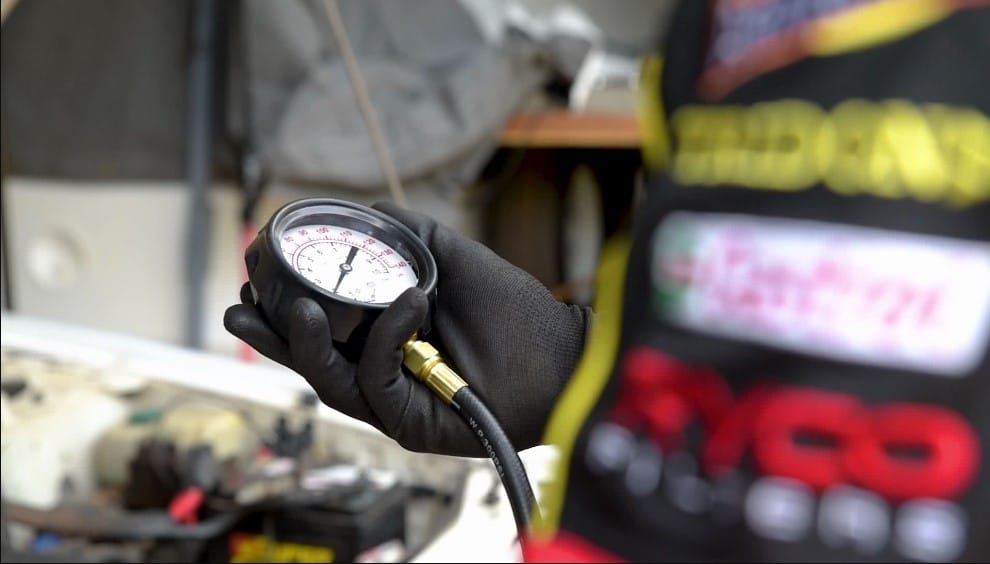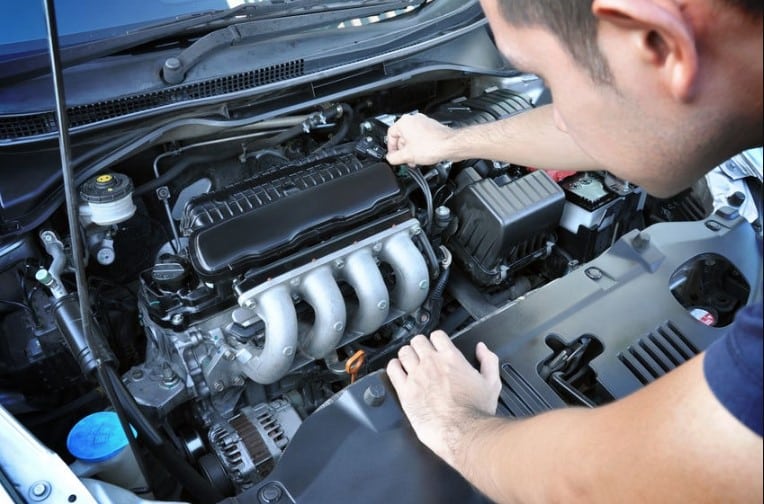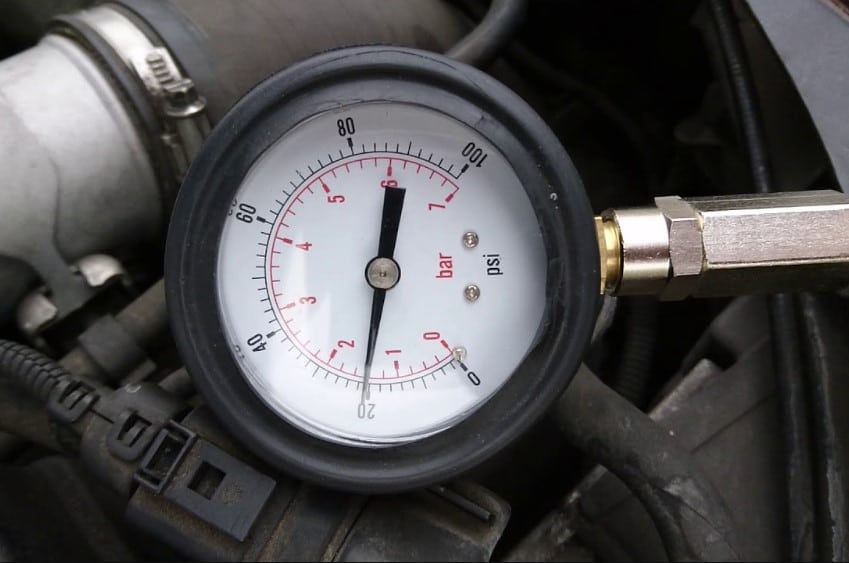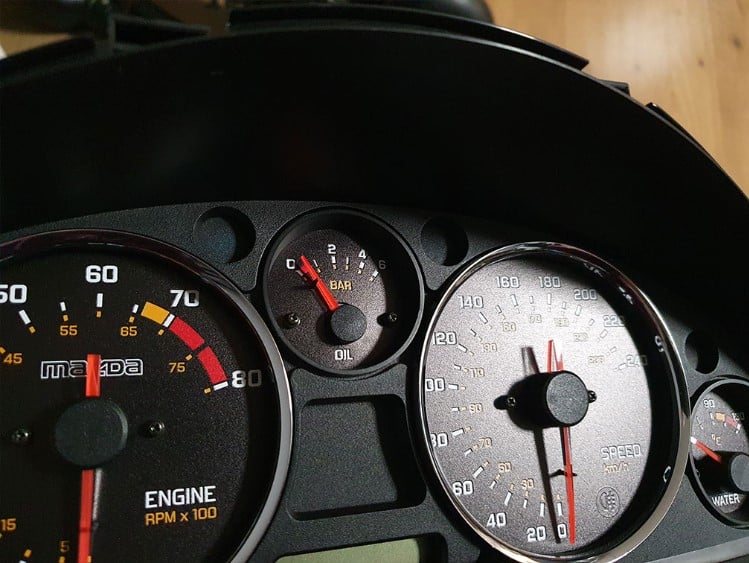What Causes Low Oil Pressure At Idle: A Simple Guide

What Causes Low Oil Pressure At Idle?
What causes low oil pressure at idle? As a car owner, it's important to understand what oil pressure is and how it works. Low oil pressure at idle can be caused by a few different things. Many people don't know this, but oil pressure is one of the most important things to keep an eye on in your car. Not only does it ensure that your engine is running smoothly, but it also helps to prevent wear and tear on all of the moving parts in your engine.

For the car owner and amateur mechanic, one of the most confusing aspects of car maintenance is understanding oil pressure. It seems like a straightforward concept - the higher the engine speed, the higher the oil pressure. However, things are not always so simple. In this blog post, we'll take a look at what causes low oil pressure at idle, and how you can diagnose and fix the problem.
What is Oil Pressure?
Oil pressure is the measure of the force that oil exerts on the walls of an engine's bearings. It is an important factor in determining how well an engine will perform and how long it will last. There are two types of oil pressure: operating pressure and bearing pressure. Operating pressure is the pressure needed to circulate oil throughout the engine. Bearing pressure is the pressure exerted by the oil on the bearings themselves.

Oil pressure is measured in pounds per square inch (PSI). The average operating pressure for most engines is between 30 and 60 PSI. The average bearing pressure for most engines is between 10 and 20 PSI. Higher oil pressures can be beneficial for performance, but they can also lead to increased wear on engine parts. For this reason, it is important to consult a qualified mechanic before making any changes to your engine's oil system.
What Causes Low Oil Pressure at Idle?
We all know what oil is - it's the lifeblood of our engines. It lubricates and protects moving parts, prevents wear and tear, and helps the engine run cooler. So when we experience low oil pressure at idle, it's understandably a cause for concern. But what could be causing this problem? Let's take a look at some possible culprits.
Worn or damaged bearings
One of the most common causes of low oil pressure at idle is worn or damaged bearings. When bearings are damaged, they can no longer properly support the weight of the crankshaft, causing it to wobble. This can lead to a loss of oil pressure as the oil pump is unable to maintain proper pressure. In addition, damage to the bearings can also cause metal particles to enter the oil, which can further damage the engine.
If you suspect that your bearings are damaged, it is important to have them inspected by a qualified mechanic as soon as possible. Bearings are a vital part of the engine and if they are not repaired or replaced in a timely manner, they can cause extensive damage to your engine.
Dirty oil
Low oil pressure at idle can be caused by a variety of factors, but one of the most common is dirty oil. When oil becomes contaminated with dirt and other debris, it can no longer effectively lubricate the engine. This can lead to increased friction and wear, which in turn can cause the oil pressure to drop. In addition, dirty oil can also cause the oil pump to work less efficiently, further reducing pressure. If you suspect that your low oil pressure is due to dirty oil, it's important to have the oil changed as soon as possible. This will help to protect your engine from further damage and ensure that it runs smoothly and efficiently.
Leaking seals
Low oil pressure at idle can be caused by leaking seals. As the engine oil circulates, it comes into contact with various seals and gaskets. Over time, these seals can become worn or damaged, allowing oil to leak out. In addition, worn or damaged seals can also cause low oil pressure at idle. When the engine is running, the oil pump pumps oil through the engine to lubricate the moving parts.
If there is a leak in the system, the pump will not be able to maintain proper oil pressure. As a result, the moving parts will not be properly lubricated, causing friction and wear. In order to prevent low oil pressure at idle, it is important to regularly check for leaks and replace any worn or damaged seals.
Poor car maintenance
Low oil pressure at idle can be caused by a number of factors, but one of the most common is poor car maintenance. If your car isn't regularly serviced, the oil level can drop below the minimum level, causing the oil pump to work harder and put unnecessary strain on the engine. In addition, dirty or old oil can cause a build-up of deposits on engine parts, which can restrict oil flow and lead to low oil pressure.
If you're experiencing low oil pressure at idle, it's important to take your car to a mechanic for a full investigation. In some cases, the low oil pressure may be indicative of a more serious problem, such as an oil leak or engine damage. By getting your car serviced regularly, you can help avoid these problems and keep your engine running smoothly.
Faulty pressure gauge
A faulty pressure gauge is the most likely cause of low oil pressure at idle. In most cars, the oil pressure gauge is located on the dashboard, near the speedometer. If the needle on the gauge is consistently lower than normal, it could be due to a problem with the gauge itself. Alternatively, if the needle only drops when the car is idling, it could be an indication of a more serious issue, such as a leak in the oil system. In either case, it's important to have the problem diagnosed by a professional mechanic in order to avoid potential engine damage.

Using the wrong oil
Low oil pressure at idle can be caused by using the wrong oil. The wrong oil can cause friction and wear on the engine components, resulting in lower oil pressure. In addition, the wrong oil may not provide the necessary lubrication for the engine, resulting in increased wear and tear. If you suspect that you are using the wrong oil, it is important to consult with a qualified mechanic to ensure that your engine is properly lubricated. Failing to do so could result in expensive repairs or even engine failure.
Worn-out oil pump
Low oil pressure at idle can be caused by a worn-out oil pump. The oil pump is responsible for moving the oil through the engine, and over time, it can become less effective. This can cause the oil pressure to drop, particularly at idle when the engine is not running as fast. If you suspect that your oil pump is failing, it's important to have it inspected by a mechanic.
They will be able to tell you for sure whether or not the pump needs to be replaced. In some cases, it may be possible to repair the pump, but in other cases, a replacement will be necessary. Either way, it's important to get the problem fixed sooner rather than later to avoid damage to your engine.
Old and worn-out engine
Low oil pressure at idle can be caused by an old and worn-out engine. Over time, the engine's components begin to wear out, which can cause the bearings to become loose. This can then lead to a loss of oil pressure, and the engine will run roughly at idle. If the problem is not corrected, it can eventually cause the engine to seize up and fail. To avoid this problem, it is important to have your engine regularly serviced and checked for wear. If you notice any signs of low oil pressure, make sure to have your mechanic check it out as soon as possible.
Clogged Oil Filter
If you notice that your oil pressure is low when the engine is idling, one possible cause is a clogged oil filter. The oil filter is responsible for removing impurities from the engine oil, and over time it can become clogged with dirt and debris. This can restrict the flow of oil to the engine, causing low oil pressure at idle. In some cases, a clogged oil filter can also cause the engine to overheat. If you suspect that a clogged oil filter is causing low oil pressure, you should have the filter replaced as soon as possible. Failure to do so could result in serious damage to the engine.
Internal Oil Leakage
Internal oil leakage is one of the most common causes of low oil pressure at idle. When oil leaks past the seals and gaskets inside the engine, it can interfere with the proper operation of the oil pump. As a result, the pump may not be able to maintain adequate pressure, causing the engine to run lean and potentially damaging the bearings.
In addition, oil leaking into the combustion chamber can cause pre-ignition and knocking, further compromising engine performance. If you suspect that your engine has an internal oil leak, it is important to have it inspected by a qualified technician as soon as possible. Trying to repair the leak yourself could result in further damage to the engine.
Low oil level
Low oil pressure at idle can be caused by a variety of things, but the most common cause is a low oil level. If the oil level is low, it means that there isn't enough oil circulating through the engine to keep all the moving parts lubricated. This can lead to increased friction and heat, which can damage engine components. In addition, a low oil level can also cause the oil pump to work harder, which can lead to increased wear and tear. If you suspect that your car has a low oil level, it's important to check it as soon as possible and add oil if necessary. Failing to do so could result in serious engine damage.
How to Diagnose Low Oil Pressure at Idle?
Low oil pressure at idle can often be diagnosed by checking the oil level and condition. If the oil level is low, add oil to the engine and check the pressure again. If the pressure is still low, suspected causes could include a faulty oil pump, blocked oil galleries, or excessive bearing clearances. Another possibility is that the wrong viscosity oil is being used. Always consult your owner’s manual or a qualified mechanic to be sure you are using the correct viscosity oil for your engine. To check for a faulty oil pump, remove the oil pressure sending unit and install a mechanical gauge into the opening. Start the engine and note the reading on the gauge. If the reading is low, replace the oil pump.

To check for blocked oil galleries, first, make sure the engine is at operating temperature. Then, remove the oil pressure sending unit and install a mechanical gauge into the opening. With the engine running at idle, note the reading on the gauge. If the reading is high, there may be a blockage in an oil gallery. To check for excessive bearing clearances, first, make sure the engine is at operating temperature. Then, remove the oil pressure sending unit and install a mechanical gauge into the opening. With the engine running at idle, note the reading on the gauge. If necessary, consult a qualified mechanic to adjust bearing clearance.
What is Normal Oil Pressure?
Oil pressure is the force that pushes oil through the engine. The normal oil pressure for most engines is between 15 and 30 psi (pounds per square inch). The oil pressure gauge on most cars will have a "safe" range marked, usually between 40% and 60% of maximum oil pressure. If the needle falls below this range, it indicates that the engine isn't getting enough oil, and you should check the level as soon as possible.

Low oil pressure can be caused by a variety of factors, including a low oil level, a worn-out pump, or even a clogged filter. In some cases, it can also be an indication of serious engine damage. If you see a sudden drop in oil pressure, it's important to pull over and shut off the engine as soon as possible to avoid further damage.
Why oil pressure is too low at idle?
If the oil pressure in your car is too low at idle, it could be due to a variety of reasons. One possibility is that the oil level in the engine is too low. If the oil level is low, it will take longer for the oil to circulate through the engine, and this can result in lower oil pressure at idle. Another possibility is that the oil pump is not working properly. The oil pump is responsible for circulating oil throughout the engine, and if it is not working correctly, it can cause low oil pressure.

Finally, there could be an issue with the engine itself. If the bearings or other parts of the engine are worn, they may not be able to properly hold onto the oil, causing it to leak out and resulting in low oil pressure. Whatever the cause, low oil pressure can be a serious problem and should be addressed as soon as possible to avoid further damage to the engine.
What should your oil pressure be at idle?
Oil pressure is an important indicator of the health of your engine. It measures the amount of force that is required to pump oil through the engine. Ideally, your oil pressure should be at least 30 psi (pounds per square inch) at idle. If it is below this level, it could be a sign that your oil pump is not working properly or that your engine is low on oil. If your oil pressure is significantly below 30 psi, you should have your car checked by a mechanic as soon as possible.

Additionally, if your oil pressure light comes on while you are driving, you should pull over and turn off your engine as soon as it is safe to do so. Once your engine is turned off, do not start it again until you have had it checked by a mechanic. Driving with low oil pressure can cause significant damage to your engine.
Downsides of Having Low Oil Pressure
If you're like most drivers, then you probably never think about your car's oil pressure until there's a problem. But did you know that low oil pressure can cause serious damage to your engine? Below, we'll take a look at the downsides of having low oil pressure.
Engine Damage
Engine damage is one of the main downsides of having low oil pressure. Over time, insufficient oil pressure can cause the engine bearings to wear out, leading to engine failure. Low oil pressure can also cause the valves and pistons to suffer damage, resulting in decreased performance and fuel efficiency. In extreme cases, low oil pressure can cause the engine to seize up completely, causing costly repairs or even requiring the replacement of the entire engine. For these reasons, it is essential to maintain proper oil pressure in order to avoid engine damage.
Oil Leaks
Low oil pressure is one of the many downsides of having an oil leak. Not only does it make your car less efficient, but it can also cause your engine to seize up, resulting in a costly repair bill. In addition, oil leaks can be environmentally damaging, as they can pollute groundwater and soil. And if the leak is large enough, it can also create a fire hazard. So if you suspect that your car has an oil leak, it's important to have it checked out by a qualified mechanic as soon as possible. Ignoring the problem could lead to serious consequences down the road.
Reduced Fuel Economy
One of the most noticeable effects of low oil pressure is reduced fuel economy. If your engine isn't getting enough oil, it has to work harder to perform the same tasks, which means that it uses more fuel. Low oil pressure can also cause your engine to overheat, which can lead to expensive repairs. In addition, low oil pressure can cause premature wear on your engine's components, which can shorten its lifespan. For all these reasons, it's important to keep an eye on your oil pressure and address any problems as soon as possible.

High Engine Temperature
Low oil pressure can be a serious problem for any engine, as it can lead to high engine temperatures. This is because low oil pressure prevents the oil from properly lubricating the engine parts, leading to increased friction and heat. In addition, low oil pressure can cause the engine to overheat by preventing the oil from dissipating heat properly. As a result, it is important to maintain proper oil pressure in order to prevent these problems. There are a number of ways to do this, such as regularly checking the oil level and replacing the oil filter. If the problem persists, it may be necessary to consult a mechanic.
Breakdown of Core Engine Components
Low oil pressure is a cause for concern in any engine, as it can lead to a Breakdown of Core Engine Components. The oil pump is responsible for pressurizing the oil, which then circulates through the engine to lubricate and cool the various components. If the oil pressure is too low, the pump may not be able to properly circulate the oil, leading to overheating and wear on the engine components. In addition, low oil pressure can also cause leaks, as seals and gaskets may not be properly lubricated. As a result, it is important to maintain proper oil pressure in order to extend the life of your engine.
Low Performance of Engine
The low performance of the engine is one of the major downsides of having low oil pressure. When the oil pressure is low, it means that there is not enough oil reaching the engine parts that need to be lubricated. This can lead to increased friction and heat, which can damage the engine components.
In addition, low oil pressure can also cause the engine to run less efficiently, resulting in reduced fuel economy. If you notice that your engine is performing poorly, it is important to have it checked by a mechanic to ensure that the oil pressure is not too low. Failing to do so could result in serious damage to your engine.
Symptoms of Low Oil Pressure
If you are a driver, it is important to know the symptoms of low oil pressure. This can help you prevent engine failure down the road. Low oil pressure can be caused by a variety of factors, so it is important to troubleshoot and find the root cause. Below, we will discuss the symptoms of low oil pressure.
https://autoemc.net/blog/what-causes-low-oil-pressure-at-idle/
Nhận xét
Đăng nhận xét